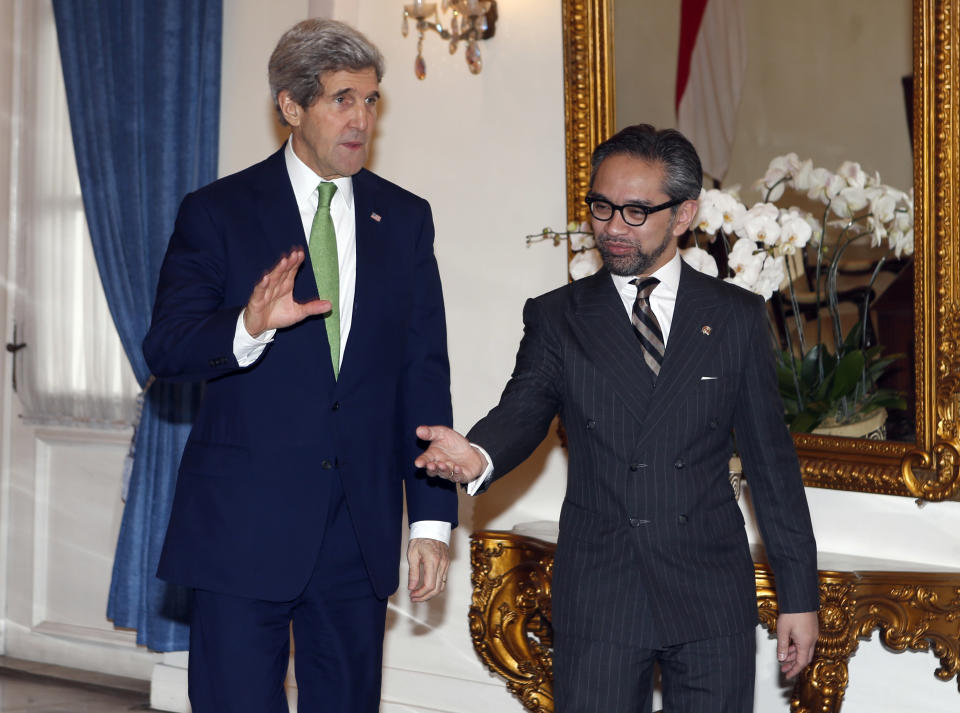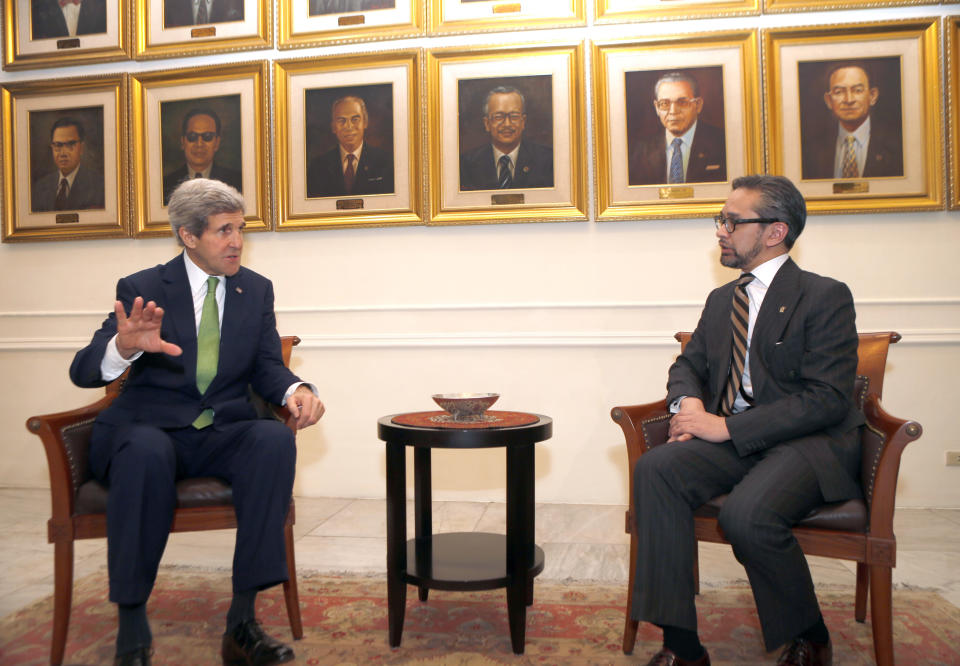Kerry visits UAE for talks on Syria
ABU DHABI, United Arab Emirates (AP) — U.S. Secretary of State John Kerry traveled to Abu Dhabi Monday for discussions with Emirati officials on the deteriorating situation in Syria, nuclear talks with Iran and the Middle East peace process.
Kerry flew to Abu Dhabi from Indonesia, where he laid into the Syrian government and Russia for the lack of progress in talks aimed at ending the crisis. Kerry slammed Russia, along with Iran, for continuing to support the government, which he said had allowed it to "double down" on its attacks against civilians.
The UAE and other Gulf Arab states have been supportive of the Syrian opposition and Kerry plans to discuss such assistance as well as humanitarian aid, US officials said.
Earlier, Kerry accused President Bashar Assad of stonewalling in peace talks and called on Russia to push its ally to negotiate with opposition leaders.
"Right now, Bashar al-Assad has not engaged in the discussions along the promised and required standard that both Russia spoke up for and the regime spoke up for," Kerry said during a news conference in Jakarta with Indonesian Foreign Minister Marty Natalegawa.
He said Assad's team "refused to open up one moment of discussion" of a transitional government to replace Assad's regime.
"It is very clear that Bashar Assad is trying to win this on the battlefield instead of coming to the negotiating table in good faith," Kerry said
Peace talks last week in Geneva ended with no progress toward breaking the impasse in the nearly 3-year-old conflict in Syria.
Kerry, who called Syria "a tragedy to the world," also had harsh words for Assad's allies in Moscow.
"Russia needs to be a part of the solution and not be contributing so many more weapons and so much more aid that they are in fact enabling Assad to double down, which is creating an enormous problem," he said.
Russia has told the U.S. it was committed to helping create a transitional government, Kerry said, but has not delivered "the kind of effort to create the kind of dynamic by which that could be achieved."
On Sunday, Syrian Foreign Minister Walid al-Moallem blamed the U.S. for the breakdown in negotiations, saying the U.S. tried to "create a very negative climate for dialogue in Geneva."
U.N.-Arab League mediator Lakhdar Brahimi apologized to the Syrian people for failing to reach progress. "I am very, very sorry, and I apologize to the Syrian people that their hopes which were very, very high that something will happen here," Brahimi said.
Syria's conflict started as largely peaceful protests against Assad in March 2011 but later degenerated into a civil war in which more than 140,000 people have been killed, according to activists.
The U.N.'s human rights office said in January it has stopped updating the death toll from the war, confirming that it can no longer verify the sources of information that led to its last count of at least 100,000 in late July.
Millions have been driven out of their homes, seeking shelter in neighboring countries and in safer parts of their homeland.
Washington and its European and Persian Gulf allies are backing the opposition in Syria's conflict. Russia and Iran are supporting Assad's government.
"The talks themselves are taking a recess for the moment," Kerry said Monday. "But all of us need to remember that there is no recess for the people of Syria who are suffering."
He added: "The international community needs to use this recess in the Geneva talks to determine how to use this time most effectively in order to bring about a political solution. We still believe there is no military solution."
___
Associated Press writers Barbara Surk, Bassem Mroue and Yasmin Saker in Beirut contributed to this report.






